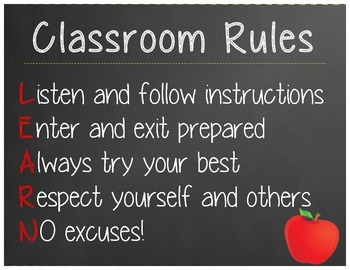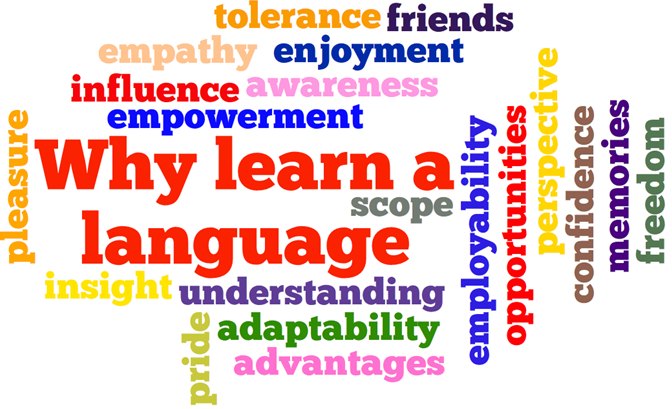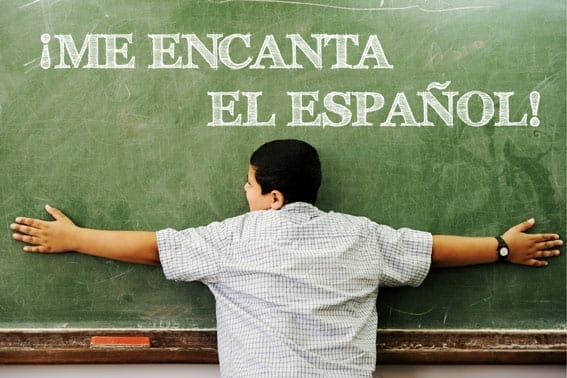Type Text Here

MRS. VARGAS OFFICE HOURS: TUESDAY AND THURSDAY FROM 7:45-8:00 AM
Greetings/Saludos!
My name is Lucy Vargas. I am a Spanish Teacher at Hillside High School. I am native speaker of Spanish Language. I have been teaching since 1983 and at Hillside School District since 2002. I have a Master degree in Spanish Language and Cultures.
During the school year 2023-2024 I am looking forward to serve in the community teaching Spanish I, Spanish II, Spanish 2 Honors and Spanish III.
To understand and have a better perspective of what we are going to do this year, here is a brief description of the courses:
SPANISH I: Is designed for beginners in the Spanish language. This class is to develop listening, speaking, reading and writing skills through a variety of activities.
Specific grammar instruction, vocabulary and cultural perspectives of everyday life are part of our intensive daily instruction.
The beginning course stars with simple conversations in the target language and continues with an emphasis on understanding and speaking. A certain amount of reading and writing task are assigned. A vocabulary useful for normal work and play is applied to achieve mastery of simple sentence structure. The culture and life style of the various countries speaking the language is infused parallel to the language learning.
SPANISH II: Is designed as continuity of the Spanish I program and projected for low to intermediate language learners. The focus of this class is to develop vocabulary through context, improved writing, reading, comprehension and speaking skills.
The second-year course continues the emphasis on understanding and speaking the targeted language. Through daily oral and written assignments and attention to pronunciation, students’ approach fluency in many constructions. Sentences patterns at this level become more complex, introducing a wider range of tenses and idioms. Greater attention is given to the expanded reading and writing skills. The increased vocabulary of the culturally oriented materials is geared to family, living, travel, work and recreational activities.
SPANISH-2 HONORS:
The Honors class prepares students with an intermediate level of language acquisition. Students will further develop their four communicative skills-listening, speaking, reading and writing through interpersonal, interpretive and presentational activities. These skills promote extended language understanding. Upon completion of the course, students will have the necessary skills in order to enroll in advance placement classes.
SPANISH III: As well as Spanish II in foundation, students excel with in a higher scale to be prepare in more demanding basics in the areas of reading, writing, comprehension and speaking skills.
Base in the foundation adquired to be at this level, students are going to be challenge to excel with with a higher expectations and scale to be prepare in more demanding basics in the areas of reading, writing, comprehension and speaking skills on target language. This class prepares students with skills that will move them to enroll in advance placement classes targeting the promotion for higher education in their process of language acquisition. Students will further develop their four communicative skills-listening, speaking, reading and writing through interpersonal, interpretive and presentational activities. These skills promote extended language understanding.
I am looking forward to help and contribute in community in the process of learning and growing together.
Best,
Sra. Vargas
Sra. Vargas Classroom Rules

YOU MUST REMEMBER:
-
Be in class on time.
-
Bring all books and materials to class.
-
Do not eat or drink in the classroom.
-
No hats, sun glasses, coats or any other similar items will be worn in the
classroom. -
NO personal grooming during class time.
-
ABSOLUTELY NO TALKING while the teacher is conducting the lesson.
-
Listen to instructions the first time they are given.
-
NO cell phones will be permitted in the classroom unless they are off and put away.
-
Do not use vulgar or offensive language.
-
Keep your hands, feet and objects to yourself.
-
I highly suggest that you do not miss any tests or quizzes because NO MAKE UPS will be given. A review will be given before any test is administered and announced in advanced.
Notas Generales (General Notes)

CRITERIO DE EVALUACION
*50% DE EXAMENES Y PROJECTOS
25% DE QUIZES
10% DE TRABAJO EN CLASE Y ACTIVIDADES INICIALES (DO NOWS/WARM-UPS)
15% DE TAREAS
TOTAL: 100/100
-
Your class work must be finished and complete to obtain credit for it. Any errors you obtain you will have the opportunity to correct them.
-
You DO NOT GET CREDIT for work that is copied from another classmate or from the teacher's review.
-
If you need help, every day at 7:30 am I am in room _221_to assist you and give you tutoring, if you cannot come in early, I will make arrangements for getting you help with tutors after school. You are not alone and I want to help you succeed... it takes the willing of learning, the effort, discipline and the commitment of working hard to reach the goals.
Are you ready for this?


SCHOOL SUPPLY LIST
Señora VARGAS
|
SUPPLY DESCRIPTION |
|
#2 Pencils or any other favorite pen 1 Spiral notebook (3 subjects) divide it as follows:
1 Two-pocket folder 1 Spanish-English dictionary Crayons Eraser Sharpener Highlighter Ruler
|
*Please remember that if you already have any materials from the School Supply List that you used in the previous year you don't have to buy it again, just use it! If you need any help to get any of these items you can come to me and I would do my best to help you.
**I am not asking for anything fancy or expensive.
Have a great and successful year 2023-2024!
World Languages and Cultures
Benefits of learning a second language include brain growth, staving off dementia, boosting memory, improving attention and more…
“To have another language is to possess a second soul.” –Charlemagne



1. Brain growth


The fact that language canters in the brain actually grow is one of the major benefits of learning a second language.
The better you learn, the more those vital areas of the brain grow (Mårtensson et al., 2012).
2. Stave off dementia

Bilingualism delays Alzheimer’s disease in susceptible people by as much as five years (Craik et al., 2010). Seems incredible, but the studies are continuing to support this result.
To put this in context: the effect on dementia of learning another language is much greater than anything achievable with the latest drugs.
3. Hear language better

Being bilingual can lead to improved listening skills, since the brain has to work harder to distinguish different types of sounds in two or more languages (Krizman et al., 2012).
4. Become more language sensitive

Infants in bilingual households can distinguish languages they’ve never even heard before (Werker & Sebastian-Galles, 2011).
Just being exposed to the different sounds in, for example, Spanish and Catalan, helps them tell the difference between English and French is another of the benefits of learning a second language.
5. Boost your memory

Babies brought up in a bilingual environment have stronger working memories than those brought up with only one language (Morales et al., 2013).
This means they are better at mental calculation, reading and many other vital skills.
6. Better multi-tasking

Bilingual people can switch from one task to another more quickly.
They show more cognitive flexibility and find it easier to adapt to unexpected circumstances (Gold et al., 2013)
7. Increased attention

Bilinguals have stronger control over their attention and are better able to limit distractions (Bialystok & Craik, 2010).
8. Double the activation

Cognitive boosts, like improved attention and better multi-tasking, may come because bilingual people have both languages activated at the same time, and must continually monitor which one is appropriate (Francis, 1999).
All that switching back and forth as well to become more critical thinker and resolve problems confers the benefits of learning a second language.
9. New ways of seeing


Learning a new language can literally change the way you see the world.
Learning Japanese, for example, which has basic terms for light and dark blue, may help you perceive the color in different ways (Athanasopoulos et al., 2010).
10. Improve your first language


Since learning a second language draws your attention to the abstract rules and structure of language, it can make you better at your first language.
- Because the brain is made to operate differently, it develops a variety of cognitive skills. Studies show that the benefits of learning a new language included higher scores on standardized exams in math, reading comprehension, and vocabulary by multilingual students compared to the scores of monolingual students. These were observed in ACT and SAT exams. Continued immersion was known to increase IQ and develop innovativeness in students.
11. Foreign language makes a person more flexible and open to other cultures.



- Since a language is a doorway to a particular culture, learning a new language enables a person to have a broader understanding of that race or culture. Opening up to a culture allows you to be more flexible and appreciative of other ways of doing and looking at things. As a result, if you are multilingual, you have the advantage of seeing the world from different vantage points. In today’s interconnectedness, this is a valuable tool.
12. Foreign language expands career potentials.


-
With universal unemployment problems, a multilingual ability is definitely a competitive edge over others. It is an ability that tells of a person’s intelligence, flexibility, openness to diverse people, and decision-making skills. And these are just bonuses to the evident ability to communicate in several languages and cross cultural barriers.
13. It builds self-confidence.

- Self-confidence is a natural consequence after summing all benefits of learning a new language. By simply mastering one skill, the other faculties are developed. People tend to gravitate around multilingual people because of their skills; others simply find the polyglots’ openness and quick-mindedness naturally attractive.
14. It aids in self-discovery and self-actualization.



- It is an interesting outcome, not at all something that you list as your expected result when you embark to learn a new language. But trying to understand a language and the heritage that goes with it will put you in a position of self-discovery. It makes you come to terms with how you view the world and other cultures, and have more appreciation of your own. In the end, you come to terms with yourself, too.
- The cognitive and mental benefits of learning a foreign language are instantly apparent. But it also brings a host of social, cultural and personal benefits. It is best introduced at the earliest age possible. But learning it at a much later age is still very much worth it. Delaying dementia and related diseases is good enough reason to learn.
In a globalized world, where mobility is facilitated, learning a language is a wonderful benefit. Not only does it help when traveling, it is also a great advantage for studying in general and for career prospects abroad.
As Geoffrey Willans said: “You can never understand one language until you understand at least two.”
Image credit: Michael Davis-Burchat
Related Articles:
- The Age At Which Learning a New Language Stops Strengthening The Brain
- The Bilingual Advantage: More Gray Matter in Key Brain Region
- How We Know Babies Are Born With The Structure of Language
- Learn Languages Better With This Psychological Tip
- Here’s The Curious Secret To Perfect Learning While You Are Distracted
Why learn Spanish?
Great reasons why you should start putting more effort learning Spanish today:
1. Communicate with 350 million native Spanish speakers worldwide.
Spanish is spoken by at least an estimated 350 million people around the world and is currently the 4th most commonly spoken language worldwide. Geographically, a large number of countries have Spanish as a dominant language: Spain, the United States, Venezuela, Argentina, Chile, Equatorial Guinea, the Philippines, Guatemala, Honduras, Nicaragua, Costa Rica, Ecuador, Peru, Mexico, Cuba, the Dominican Republic, Puerto Rico, Panama, Colombia, Bolivia, Paraguay, and Uruguay. Knowing Spanish opens the door for you to communicate with 1/3 of a billion speakers worldwide!
2. Communicate with Spanish-speaking people at home.
If you live in the US, it is possible to maintain almost daily contact with native Spanish speakers in many cities or even in rural areas. This is certainly the case in the many states bordering Mexico, or such states as Florida and New York where many immigrants of Cuban ancestry reside. Even if your home state is not located in one of these areas, there is still a great likelihood of finding Spanish-speakers close to where you live. As of 1995, 10% of all people living in the US were of Hispanic descent. In the past 10 years, this number has continued to increase.
Perhaps this is why 53% of students learning languages in US colleges and universities are learning Spanish over other languages. You have the opportunity to use your language skills right at home.

3. Learn Spanish to enhance your travel experiences.
If you've ever dreamed of visiting far-off, exotic, tropical places, you don't have far to look when you consider the great number of Spanish-speaking countries that fit this description. Wherever you decide to go, be it to Central America, or to Spain, the mother-country of the Spanish language, knowing the language will get you far.
Knowing the language and culture of the land you visit will give you insights into the people and culture that a non-Spanish speaker would never have access to. Knowing even a little Spanish ahead of time helps travelers communicate more successfully, especially considering that a great number of Spanish speakers do not know English. Whether giving an address in a taxi, making reservations in a hotel, ordering food or drinks in a restaurant, or meeting the locals at the main hang-out, your travel experience will be much smoother and more enjoyable when you can communicate.
If you take a little time to learn some of the Spanish language before heading off to distant lands, your understanding and appreciation for the places you visit will be improved tremendously.


4. Use Spanish to improve your employment potential.

Know a second language? Great, you're hired! If you have proven yourself to be a capable employee with just the right job skills AND you speak a foreign language such as Spanish, you are much more likely to land that job of your dreams than if you are monolingual. In fact, many jobs today require a minimum of basic proficiency in another language.
With the world becoming ever more global, contact with people of other countries has increased tremendously in recent decades. Just having a basic knowledge may be all it takes to separate yourself from the crowd of applicants for the job you are pursuing. With the rapidly increasing Hispanic population, there are a multitude of career fields in the US that need Spanish speakers. Among them are nurses, social workers, teachers, salespeople, translators, and many more.
Internationally, people who speak Spanish often have opportunities to work in trade or business fields. Other options include diplomacy, interpretation, and security applications, which all require a sensitivity and proficiency of another language. And did you know that bilingual employees often receive a larger salary than their non-Spanish speaking counterparts?
If the chance to show off your skills and be more competitive on the job market doesn't interest you in studying Spanish, perhaps the extra cash will!
5. Learn Spanish to improve your knowledge of your own language.

Spanish is from the Romance language family of languages, its roots coming primarily from Latin, the language spoken by the Romans. As you might know, English too has many words of Latin origin. Because of this, knowing Spanish helps speakers of English (as well as some other European languages) broaden their vocabulary in their native language. Often times, these same Latin roots are at the base of many sophisticated words in English, so Spanish learners can also become more proficient in English.
In addition, a recognition and understanding of these words of Latin origin is especially helpful in certain professions in science, medicine, law, and many others with specialized vocabulary, as the many centuries of Roman rule left their mark linguistically in these and other modern scientific and professional fields.
6. Learn Spanish to prepare for study abroad opportunities.

Many high schools, colleges, and universities offer study abroad opportunities. Many different types of programs are available to choose from and they vary in time from as little as a week of study to one semester, or even a whole year. Often, as little as one semester or one year of prior language study is all that is needed to qualify to participate in an exchange program.
Without taking that first step of signing up for a language class, you may just miss out on one of life's most exciting adventures possible. What could be better than living, breathing, and using your newly acquired language skills than actually putting them to use in one of the many Spanish-speaking countries from around the world? Not only does an exchange program give you the opportunity to use the Spanish you know, but also the opportunity to improve your language abilities on a daily basis. Constant exposure the language and culture of the city in which you study is believed to be the key to true language mastery and helps pave the way to literacy and native speaker like fluency.
Exchange students benefit not only from the opportunity to practice language daily, but also from the credits they receive for the classes taken while abroad. Most schools even allow students to fulfill multiple academic requirements while studying in a foreign country. Who doesn't love the idea of receiving credits toward graduation at the same time as having the experience of a lifetime?
7. Better appreciate Spanish-speaking cultures.































Apart from opening up access to areas of "high" culture such as art, literature, and history, knowledge of Spanish can help learners understand and appreciate day-to-day culture in the Spanish-speaking world. The ability to read and understand authentic Spanish -- whether that be in the newspaper, on television, in magazines, in letters from friends or pen pals, or on the street -- truly gives an "insider" view into the language and all of its different shades of meaning.
Learning the Spanish language and culture go hand-in-hand. While not impossible to learn Spanish never having experienced the culture first hand, direct exposure to the culture will give language learners insights into the language that would otherwise not be possible.
8. Learn Spanish to make lifelong friends.

As most people would probably recognize, the primary purpose of a language is to facilitate communication between people. However, what many people don't realize is that learning a foreign language, although intimidating at times, opens many doors to meeting new and exciting people that wouldn't otherwise be possible. Getting to know somebody by communicating with them in their own language is a great way to really get to know that person on a much deeper level than only through communicating with gestures or body language. Language study, practice, and exposure to the language are vital to effective and successful communication.
Even though becoming proficient in Spanish might take a lot of effort, dedication, and time on the part of the learner, the rewards can be great. Imagine all of the friends it is possible to make while on vacation, during study abroad, through having a common interest in music, or even while at work? Having lifelong international friends not only opens future travel opportunities but makes you a cultural ambassador both at home and abroad.
9. Learning Spanish makes acquiring the next foreign language easier.

It is often said by people who have become bilingual in Spanish or another language: Through hard work, perseverance, and lots of practice, the next language one learns is much easier to master by comparison. Learning a foreign language develops a whole set of mental, social, and cultural skills and this newfound awareness carries over to other languages when learned. Once Spanish has been learned to a proficient level, when the grammar concepts, vocabulary, and other facets of the language have become fairly automatic, picking up a new language comes much more effortlessly. The new languages studied, especially of European origin, tend to have a lot of recognizable, common elements that are more easily assimilated and expanded upon by tapping into previous language-learning experience. In fact, once you know Spanish, other languages in the Romance language family such as Italian, French, Portuguese, or even ancient Latin, will almost seem like "cousins" to the Spanish you've already learned!
10. Gain access to Spanish art, music, literature and film.

























Have you ever wondered what it would be like to view a film in its original language instead of watching it in a dubbed version? Are you tired of being distracted from enjoying a film by the need to read the film's subtitles? Have you wondered if the translation of the film is accurate or if you are missing out on the details in the film? Becoming proficient in Spanish would greatly enhance your enjoyment of such Oscar-winning films as Belle epoque (1993), All about My Mother (1999), and The Sea Inside (2004).
In addition to deriving more enjoyment from films, knowledge of Spanish would help gain access into the minds and times of the people responsible for some of the greatest literature in the Spanish-speaking world. Who hasn't heard of Miguel de Cervantes, whose novel, Don Quixote was not only groundbreaking in the 16th century when first published, but continues to fascinate and inspire current audiences?
What about Spanish music and art? Most people would recognize Cuban singing-sensation, Gloria Estefan, and Spanish cubist painter Pablo Picasso is known worldwide for his modern-style of art that has influenced the artistic community around the globe. In recent years, film stars from Spain and Latin America such as Penelope Cruz, Antonio Banderas, and Salma Hayak have become recognized not just at home, but in Hollywood as well.
So what are you waiting for? Get out there and start learning Spanish today and take advantage of all of the new opportunities it opens!
More tips for studying Spanish
Learning a second language can be both exciting and fun. Because the goal is to learn to communicate, you will interact with other students in your class and with your teacher as you learn to express yourself about things you like to do (and things you don't), your personality, the world around you, foods, celebrations, pastimes, technology, and much more.
Rather than primarily listening to the teacher, reading the text, and memorizing information as you might in a social studies class, you will share ideas; discuss similarities and differences between cultures; ask and answer questions; and work with others to practice new words, sounds, and sentence structures. You will be given a variety of tasks to do in preparation for such an interactive class. You will complete written activities, perform listening tasks, watch and listen to videos, and go on the Internet. In addition, to help solidify command of words and structures, time will need to be spent on learning vocabulary and practicing the language until it starts to become second nature. Many students will find that using flash cards and doing written practice will help them become confident using the building blocks of language.
Here are some suggestions that will help you become a successful language learner:
Routine:
Find a special, quiet place for study, equipped with a Spanish-English dictionary, pens or pencils, paper, computer, and any other items your teacher suggests.
· Try to study Spanish at a regular time every day. A study routine will greatly facilitate the learning process.
Strategy:
· Remember that class participation and memorization are very important in a foreign language course.
· In reading or listening activities, as well as in the classroom, it is not necessary to understand every word. Listen or look for key words to get the gist of what's being communicated.
· Ask questions in class if you are confused. Remember that other students may have the same question.
Real-life connection:
· Outside of the regular study time, review new words in their proper context as they relate to the chapter themes. For example, when studying the vocabulary for the household chapter, Capítulo 6B, you could label household objects with adhesive notes with the Spanish words. Similarly, while studying Chapter 4A vocabulary, you can bring flash cards for place names on a trip into town and review words for the buildings you pass along the way. If you can include multiple senses while studying (see the school and say escuela, or taste ice cream and say helado), it will help reinforce study and will aid in vocabulary retention.
Review:
· Review previously learned material frequently, and not just before a test. Remember, learning a language is a building process, and it is important to keep using what you've already learned.
· To aid vocabulary memorization, try several different methods, such as saying words aloud while looking at a picture of the items, writing the words, acting them out while saying them, and so on.
· Organize new material using charts, graphs, pictures with labels, or other visuals that can be posted in your study area or in your room. A daily review of those visuals will help keep the material fresh.
· Ask a parent or friend to help you practice new vocabulary and grammar by quizzing you on the charts and lists in the Manos a la obra and Repaso del capítulo sections.
Resources:
· Ask for help frequently! Your parent or guardian (or even a brother or sister!) may be willing to quiz you on vocabulary or listen to you practice reading aloud.
· Ask your teacher about how to best prepare for and what to expect on tests and quizzes.
· Ask your teacher about the availability of audio recordings and videos that support the text. The more you see and hear the language, the greater the retention. There are also online and CD-ROM based versions of the textbook that may be useful for you.
· Visit www.PHSchool.com for more practice opportunities, including downloadable audio files that you can play at home to practice Spanish. Enter the appropriate Web Code from the list below for the section of the chapter that the class is working on and you will see a menu that lists the available audio files. They can be listened to on a computer or downloaded onto a personal audio player.
Web Codes:
|
Capítulo |
A primera vista |
Manos a la obra |
Repaso |
|
Para empezar |
|
|
jcd-0099 |
|
Capítulo 1A |
jcd-0187 |
jcd-0188 |
jcd-0189 |
|
Capítulo 1B |
jcd-0197 |
jcd-0198 |
jcd-0199 |
|
Capítulo 2A |
jcd-0287 |
jcd-0288 |
jcd-0289 |
|
Capítulo 2B |
jcd-0297 |
jcd-0298 |
jcd-0299 |
|
Capítulo 3A |
jcd-0387 |
jcd-0388 |
jcd-0389 |
|
Capítulo 3B |
jcd-0397 |
jcd-0398 |
jcd-0399 |
|
Capítulo 4A |
jcd-0487 |
jcd-0488 |
jcd-0489 |
|
Capítulo 4B |
jcd-0497 |
jcd-0498 |
jcd-0499 |
|
Capítulo 5A |
jcd-0587 |
jcd-0588 |
jcd-0589 |
|
Capítulo 5B |
jcd-0597 |
jcd-0598 |
jcd-0599 |
|
Capítulo 6A |
jcd-0687 |
jcd-0688 |
jcd-0689 |
|
Capítulo 6B |
jcd-0697 |
jcd-0698 |
jcd-0699 |
|
Capítulo 7A |
jcd-0787 |
jcd-0788 |
jcd-0789 |
|
Capítulo 7B |
jcd-0797 |
jcd-0798 |
jcd-0799 |
|
Capítulo 8A |
jcd-0887 |
jcd-0888 |
jcd-0889 |
|
Capítulo 8B |
jcd-0897 |
jcd-0898 |
jcd-0899 |
|
Capítulo 9A |
jcd-0987 |
jcd-0988 |
jcd-0989 |
|
Capítulo 9B |
jcd-0997 |
jcd-0998 |
jcd-0999 |
Above all, remember that a language is not acquired overnight. Just as for a first language, there is a gradual process for learning a second one. It takes time and patience, and it is important to know that mistakes are a completely natural part of the process. Remember that it took years to learn to speak well in your first language, and that the second one will also take time.
Don't hesitate to ask your teacher for ideas. You will find the teacher eager to help you.
Learning to speak another language is one of the most gratifying experiences a person can have. We know that you will benefit from the effort, and will acquire a skill that will serve to enrich your life.

